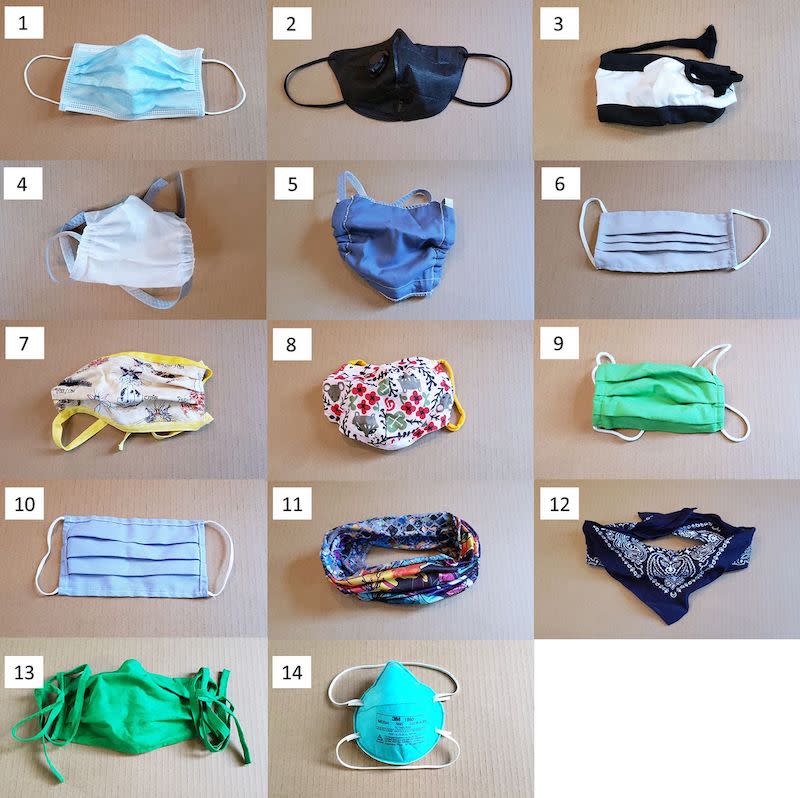Covid-19: Scientists test 14 types of face masks, discover bandanas, neck fleeces offered least protection

KUALA LUMPUR, Aug 12 — With so much debate surrounding which face mask is best to stop the spread of Covid-19, scientists at Duke University in North Carolina carried out a study to find an answer.
Researchers tested out 14 types of face masks and coverings, including N95 masks with and without exhalation valves, surgical masks, two-layer style masks of various materials, bandanas and neck fleeces.
They found that a fitted N95 mask with no valves was the most effective face mask to curb the risk of Covid-19 while the least effective form of face mask was a neck fleece.
In fact, neck fleeces were found to increase the risk of infection by recording a droplet transmission fraction of 110 per cent.
On the other hand, a fitted N95 mask without valves, commonly used by frontline healthcare workers, recorded a droplet transmission fraction of 0.1 per cent in stark contrast.
The study which was published in the Science Advances academic journal last week compared the number of droplets dispersed from a participant’s breath while wearing one of the 14 coverings against a control trial where their mouth was fully exposed.
“We were extremely surprised to find that the number of particles measured with the fleece actually exceeded the number of particles measured without wearing any mask,” Duke University researcher Martin Fischer told CNN.
“We want to emphasise that we really encourage people to wear masks, but we want them to wear masks that actually work.”
Bandanas came in second as the worst-performing face-covering although it didn’t increase the risk of infection while third worst was a knitted covering.
Surgical masks performed well in the study, coming in second best while a polypropylene mask made it to third place.
The increasingly popular handmade cotton face masks also fared well and were found to eliminate a substantial number of droplets from normal speech.
Fischer told CNN that the team used a black box, a laser and a mobile phone camera where droplets from a participant’s breath would scatter light through the laser beam while they speak wearing one of the coverings.
The mobile was used to capture respiratory droplets which are then counted using a simple computer algorithm.
“We confirmed that when people speak, small droplets get expelled, so disease can be spread by talking, without coughing or sneezing.
“We could also see that some face coverings performed much better than others in blocking expelled particles,” Fischer said.
The experiment was conducted after a professor at the Ivy League university’s Medicine school was helping a local group buy masks in bulk for community members in need.
The professor wanted to make the masks that were bough were effective in curbing the spread of the coronavirus.
According to Sky News, one of the authors of the study Eric Westman said wearing a mask is a simple way to reduce Covid-19 from spreading.
“About half of infections are from people who don’t show symptoms, and often don’t know they’re infected.
“They can unknowingly spread the virus when they cough, sneeze and just talk.
“If everyone wore a mask, we could stop up to 99 per cent of these droplets before they reach someone else.
“In the absence of a vaccine or antiviral medicine, it’s the one proven way to protect others as well as yourself,” Westman said.
Read the full study here.
Related Articles Argentina, Mexico to produce AstraZeneca Covid-19 vaccine UK's Covid-19 death toll lowered to 41,000 after methodology change White House to unveil new anti-coronavirus steps for reopening US schools, aide says



